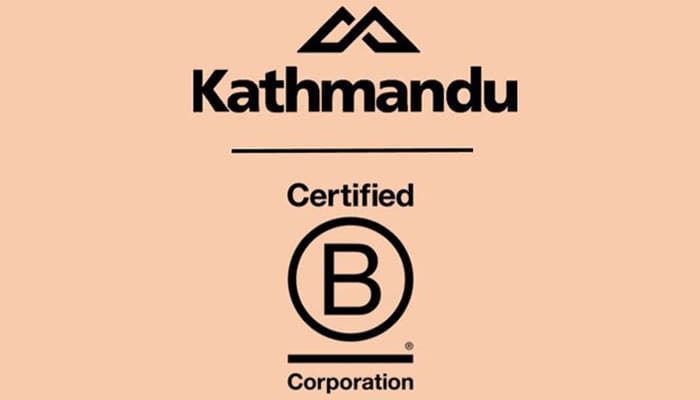Outdoor apparel brand Kathmandu has been certified a B Corporation, an achievement through which it becomes Australasia’s largest company recognised for its commitment to its environmental and social performance, public transparency and legal accountability. Kathmandu joins just over 3,000 firms the world over in receiving this accreditation, and only around 300 within Australia and New Zealand.
“Sustainability is part of Kathmandu’s DNA and is integral to our entire operation, from our supply chain, to our materials and products and our operational footprint,” Xavier Simonet, Kathmandu’s CEO, said.
Kathmandu joins a small number of apparel brands, manufacturers and retailers as a B Corporation. Upon the announcement that denim manufacturer Saitex was certified, back in June, there were just 95 in the industry recognised as truly transparent, forward-thinking businesses.
“Society’s most challenging problems cannot be solved by government and non-profits alone,” B Corp insists, “The B Corp community works toward reduced inequality, lower levels of poverty, a healthier environment, stronger communities, and the creation of more high quality jobs with dignity and purpose.”
To receive certification, companies are required to meet a minimum of 80 points across five key areas of the B Impact Assessment. These include: governance, workers, community, environment and customers. It’s not been disclosed what score Kathmandu received.
“Kathmandu’s announcement as New Zealand’s first B Corp-certified multinational retail business, and Australasia’s biggest B Corp, is a significant milestone for Australia, New Zealand and the wider B Corp movement,” said Andrew Davies, CEO of B Lab Australia and New Zealand.
The assessment tool, developed and administered by non-profit B Lab, holds firms across industry to a set of quantifiable standards which translate into the total score. It’s also possible to become a ‘benefit company’; those which register for this are legally required to consider the subsequent impact on all stakeholders and the planet prior to making decisions.
Though not an emblem of recognition like B Corp certification, registration enables companies committed to making positive change to assert themselves as ones actively striving to improve. At present, Australian businesses are unable to register to be a ‘benefit company’, though efforts are underway to overturn this via the introduction of an opt-in legal form.























